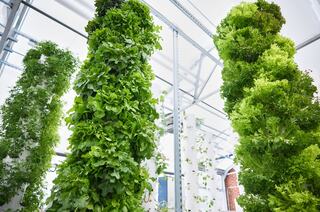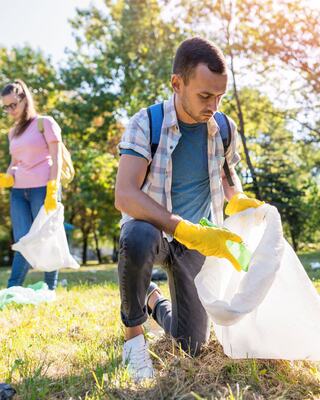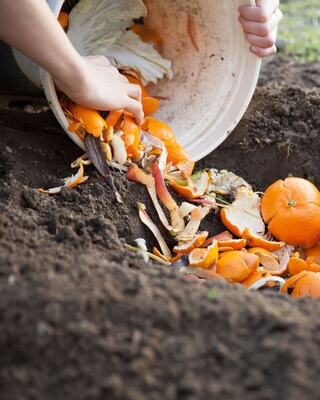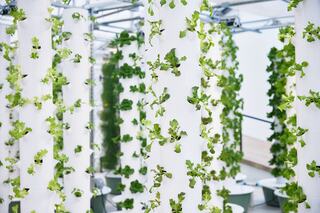Environmental Stewardship

Creating a Brighter Tomorrow
Sustainability today ensures a better tomorrow. Join Oglebay in preserving our 2,000-acre West Virginia park for future generations to enjoy.




Creating a Brighter Tomorrow
Sustainability today ensures a better tomorrow. Join Oglebay in preserving our 2,000-acre West Virginia park for future generations to enjoy.
Hydroponics
Learn more about Oglebay's initiative to reduce our carbon footprint and enhance the culinary experience by growing herbs, greens, and more on-site by visiting our Grow Lab. Learn More.
Forestry Management Program
Wheeling Park Commission is delivering cleaner energy to the world in partnership with EQT Corporation, the nation's largest producer of natural gas, through a forestry management project spanning more than 1,000 acres of natural wooded areas on the perimeters of Oglebay Park Resort and Wheeling Park.
Forests for the Future
Together with Eminence Organic Skin Care, The West Spa is helping restore the environment for future generations. Through this initiative, Eminence has planted over 24 million trees worldwide, planting a tree for every retail product sold. Learn More.
Zoo Conservation
My Park Volunteer Day
In celebration of Earth Day, Oglebay employees and the community volunteers are encouraged to assist Oglebay and Wheeling Parks for the upcoming spring/summer season in trail cleaning/cleaning, flower bed preparation, lake clean-up and more.
“Friends Helping Friends” Toy Drive
A campaign aimed at fostering a supportive and caring workplace culture. This initiative embodies the spirit of giving and supports Oglebay employees and their families during the holiday season. From November to December, employees contribute monetary donations collected throughout the park, which are used to purchase toys and gifts for the children of our staff. In 2023, the Oglebay team united to make a difference in the lives of 36 children who might not have experienced the joy of unwrapping a gift during the holidays. This initiative reaffirms the spirit of compassion and community that defines Oglebay.
Eminence Kids Foundation
For every Eminence product purchased at The West Spa, the Eminence Kids Foundation gives an organic, locally sourced meal for sick children around the world. Together, we have provided over 25,000 meals.
"No Idling Zone” Initiative
This initiative demonstrates our dedication to environmental stewardship and our hope to inspire others to help reduce greenhouse gas emissions by 25% in 2025. Vehicle idling or leaving the engine running while stationary significantly impacts the environment, contributing to air pollution by emitting harmful pollutants such as nitrogen oxides, particulate matter, and carbon dioxide.
With new signage in specific back-of-house areas, Oglebay Park Resort encourages drivers to turn off their engines if they anticipate being stationary for more than 30 seconds. We raise awareness among our employees and vendors about the benefits of reducing idling and how they can contribute. Additionally, Oglebay optimizes delivery routes to minimize congestion and waiting times, significantly reducing idling during transport and delivery.
Forest Restoration
EQT, Oglebay’s partner in the Forestry Management Program, is assisting us in maintaining our forest ecosystem and protecting the biodiversity of our natural areas. As the nation’s largest producer of natural gas, EQT is supporting a forest management project that covers over 1,000 acres of natural wooded areas on the perimeters of Oglebay and Wheeling Park. Biodiversity is essential for providing functioning ecosystems that supply oxygen, clean air and water, plant pollination, pest control, and wastewater treatment.
EQT is removing invasive species such as autumn olive, privet, and oriental bittersweet. After clearing the land, EQT is replanting the areas with a variety of native species, including American chestnut, black walnut, sycamore, aspen, red oak, white oak, black locust, yellow poplar, red maple, sugar maple, serviceberry, and hawthorn trees. This incredible biodiversity will re-establish acres of hardwood trees, attracting songbirds and other wildlife to West Virginia.
Improving Soil Health
Teralytic, a soil analytics company, is utilizing advanced soil probe technology to measure the impact of the forest management project with EQT Corporation on soil health. Teralytic probes provide real-time measurements of soil carbon, soil moisture, and other vital soil nutrients. Additionally, EQT partners with Wheeling Country Day School to pilot an educational learning program that allows students to learn about soil health by monitoring real-time changes in soil conditions 24/7.
Oglebay has also recently installed an In-Field Biochar System that processes forestry waste and converts it into a fine-grained charcoal used as a fertilizer. This system sequesters carbon emissions for 1,000 years, significantly reducing greenhouse gas emissions.
A major focus for Oglebay is to divert 30% of waste from the landfill by 2025 through recycling, composting and food recovery.
Recycling & Composting
In 2023, Oglebay replaced the metal trash barrels with new trash and recycle receptacles made from 85,840 recycled milk gallon jugs. Additionally, over 45 recycling bins were added to the cottages. We recycle paper, cardboard, and metal containers. Cardboard, greenery and produce are shredded and added to the compost pile at Oglebay Zoo, reducing the amount of waste sent to the landfill. Cardboard boxes are also reused for animal enrichment. At the zoo, we use reusable containers for animal food, preventing the use of about 2,000 plastic bags each month!
No More Plastic Bottles
Oglebay has installed over 20 water bottle filling stations throughout the park, including along Oglebay’s walking trail, within Oglebay Zoo, and at Wheeling Park. Seven of these stations feature a pet-friendly water bowl. Oglebay also encourages guests and visitors to bring reusable bottles and discourages the use of single-use plastics. Additionally, aluminum cans of water are sold in Oglebay’s resort shops.
Amenities
Oglebay’s user-friendly dispensing systems reduce plastic usage by up to 60%. Each bottle and cartridge contains EcoPure organic plastic additives, which enhance the biodegradation process when disposed of. Additionally, Oglebay uses environmentally friendly, natural cleaners.

Sustainability in Action
Explore Oglebay’s hydroponic Grow Lab—where sustainable farming meets innovation here in West Virginia. This hands-on space produces fresh greens and herbs served across the resort, connecting guests to the flavors of the land.
Learn More(Link opens in new window)